Understanding the 11 Plus Verbal Reasoning Test
Apr 4
/
Alex Gorringe
The 11 Plus verbal reasoning test is designed to assess a specific type of raw intelligence, one that, in theory, shouldn't be affected by the level of education a child has received, or the subjects they’ve been taught in school.
This makes this type of test an ideal choice for grammar school entry, as it’s designed to measure cognitive abilities regardless of a child's formal schooling - in other words, all children, regardless of their academic background, should be able to approach these questions with a similar level of understanding, and their scores should give a true indication of their natural intelligence.
However, while this sounds ideal in theory, the reality is a bit different. In practice, children who face a verbal reasoning test for the first time may well find themselves taking such a long time to complete many of the questions that their scores won't reflect their natural abilities, however bright they are. Without prior exposure or practice, the unusual nature of some of these questions can catch students off guard. On the other hand, children who have had the chance to practise these types of questions in advance will generally be able to work through them far more quickly and confidently, and with less than a minute for each question, speed in these tests is crucial!
Why Practice Is So Important
While the test is supposed to be a fair measure of natural intelligence, the reality is that those who have had tutoring or extra practice in verbal reasoning will generally perform significantly better than those who haven't. In a test designed to assess a broad range of cognitive skills, including logical reasoning, verbal ability, and mathematical aptitude, preparation is key. At Club 11 Plus, we’ve found that familiarity with all the different verbal reasoning question types can drastically improve a child's ability to tackle these tests quickly and successfully. Our mission is to level the 11 Plus playing field, allowing every child to have the opportunity to become familiar with these types of questions before they take the grammar school entry test.
What Are Verbal Reasoning Questions Like?
Our boffins have analysed all the GL verbal reasoning question types, breaking them down into 20 distinct categories, each of which is a separate module within the Club 11 Plus Verbal Reasoning Programme. These questions vary widely in terms of the types of skills they test, so in this article we’ve classified them into 6 groups, based on the abilities required to answer them:
Vocabulary Questions
These questions test your child’s understanding of words, and the breadth of their vocabulary. Questions may ask them to identify synonyms or antonyms, and the ability to spot homonyms can come in very handy too. A strong grasp of English is helpful here, as is a keen eye for spotting pesky red herrings!
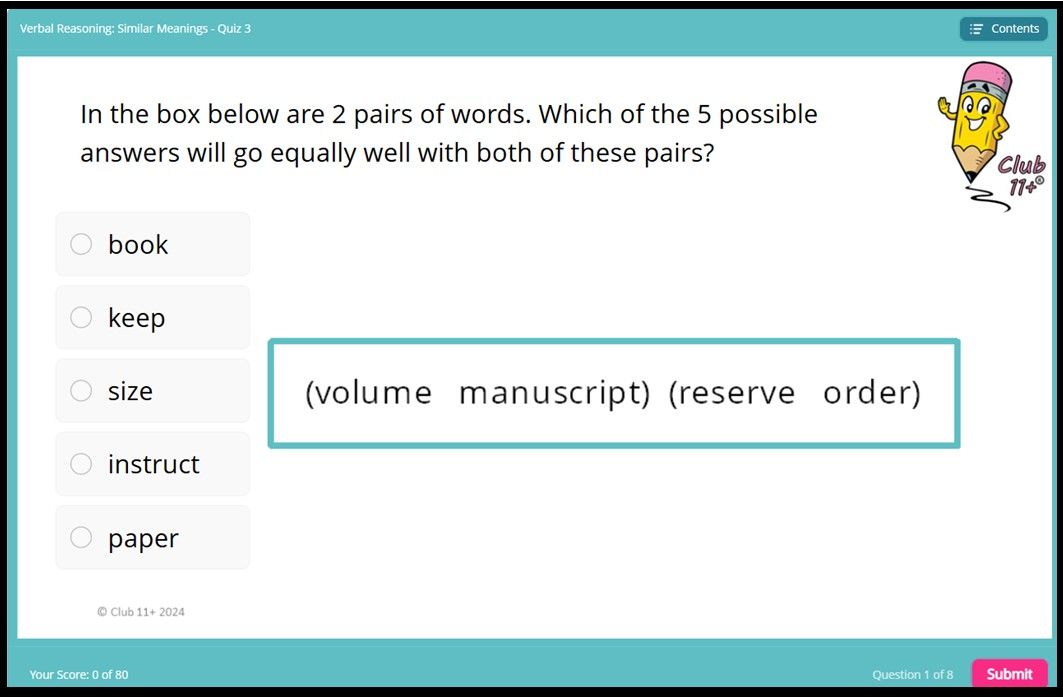
(Answer = book. The word book is a homonym, meaning volume, manuscript, reserve and order.)
Letter Manipulation Questions
Some word-based questions don’t focus on vocabulary knowledge but rather on the manipulation of letters. Children might be asked to find a new word by borrowing letters from two other words, or identify a word hidden between two others in a sentence. These questions test both linguistic creativity and logical thinking. Our boffins absolutely love them, but there's no doubt that familiarity and practice is essential to improve speed and accuracy.
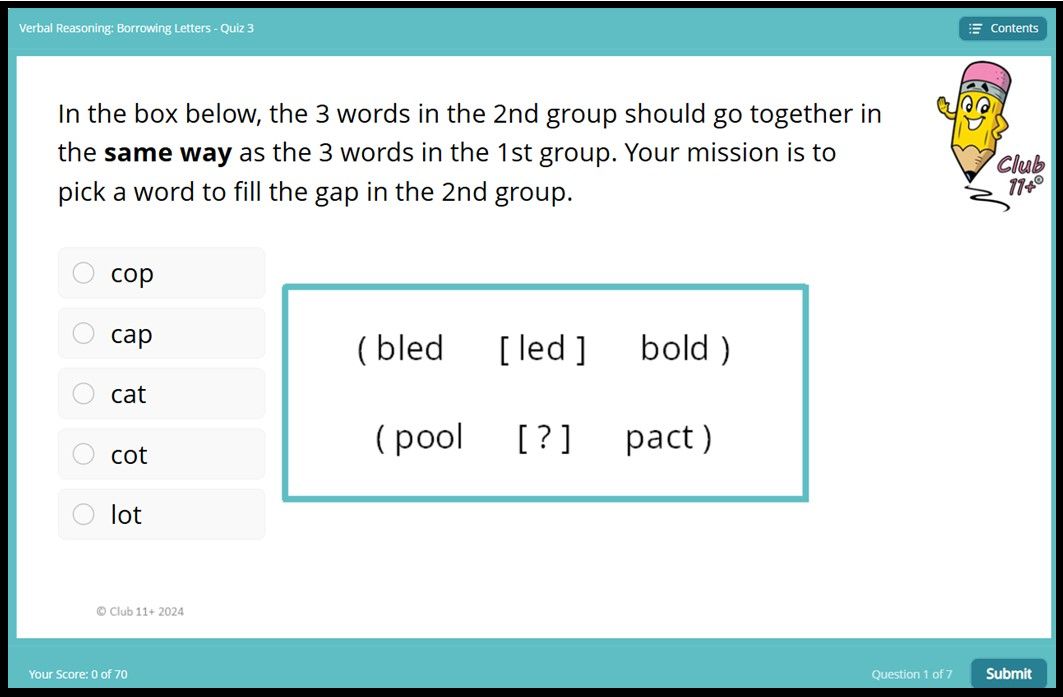
(Answer = cot. Tip: work out which letters in the words bled and bold could have been used to create the word led, and repeat that pattern with the words pool and pact.)
Sentence Structure & Logic Questions
These questions focus on the logical structure of sentences. They require a good understanding of vocabulary, as well as the ability to think logically and analytically.
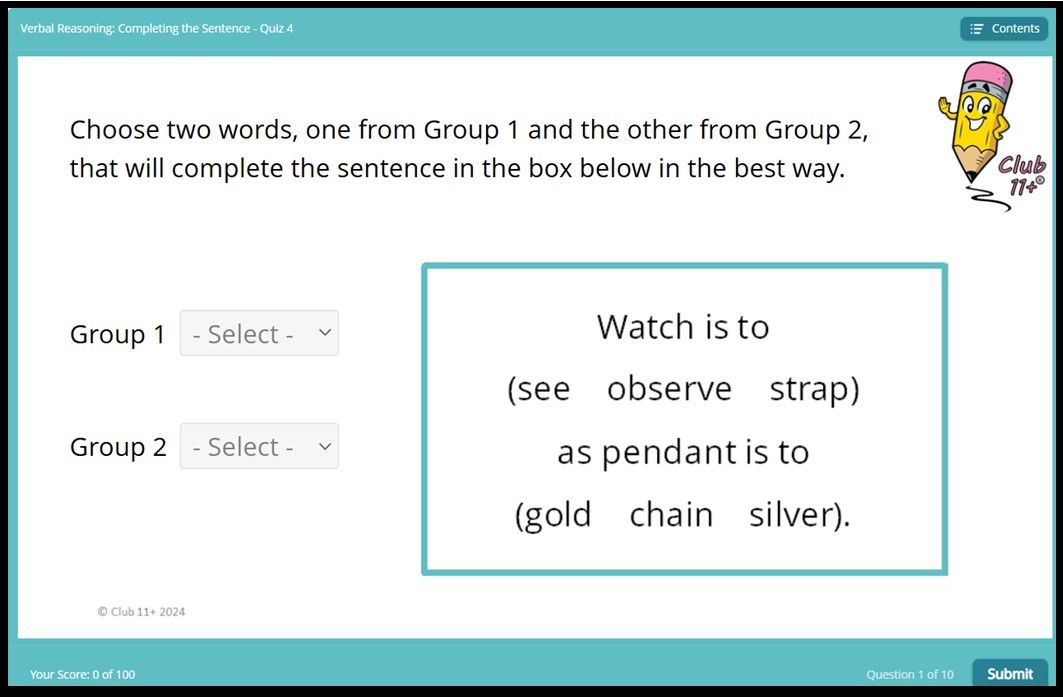
(Answer = chain. Tip: "a watch is on a strap" as "a pendant is on a chain".)
Code Questions
Code questions test logical thinking and the ability to solve puzzles. These questions don’t require strong English skills, but they do require rational, orderly thinking, challenging students in new ways, and requiring intense concentration and logical analysis. They can be time-consuming, so even those children who are naturally very good at them might be best advised to leave them to the end of the test, to maximise marks.
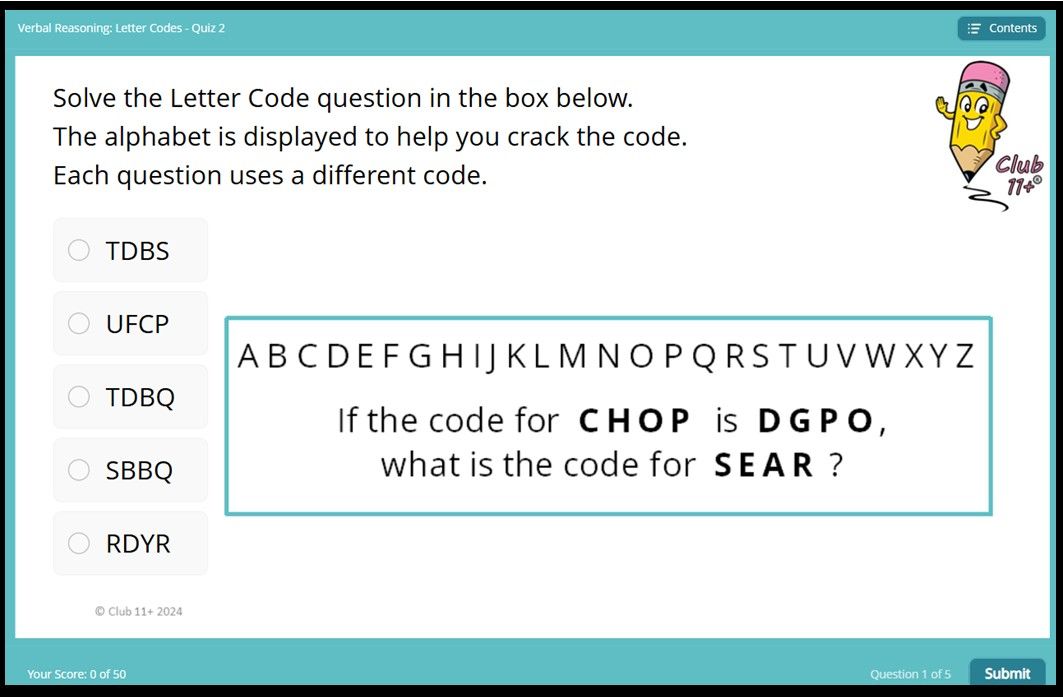
(Answer = TDBQ. Tip: work out how many letters forwards or backwards in the alphabet do you have to move to get from each letter of the word CHOP to each letter of the code DGPO, and repeat this pattern for the word SEAR.)
Numerical Questions
Some verbal reasoning questions test numerical skills, such as identifying patterns in number sequences to spot the missing number in a group, or continue a series. These questions can be very tricky - they test pattern recognition and the ability to quickly spot numerical relationships, which requires strong mathematical reasoning.
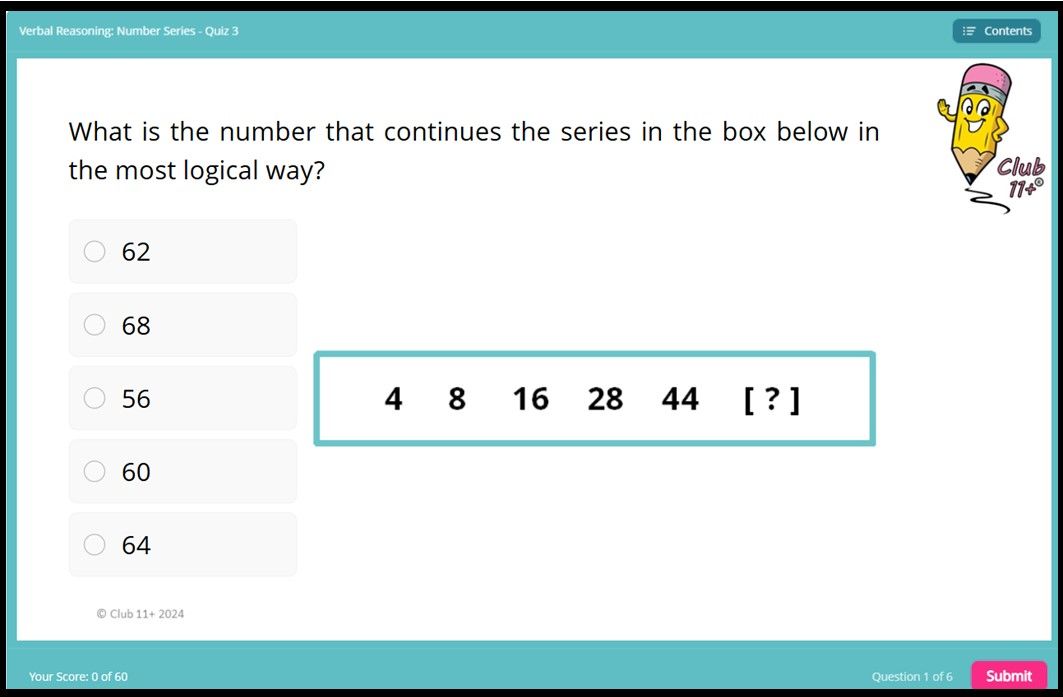
(Answer = 64. Tip: look at the sequence of the differences between each number: 4, 8, 12, 16. The next number in that sequence is 20, so the answer = 44 + 20.)
Word Problems
Logical word problems often carry only one mark, but they can be very time-consuming and complex, requiring a lot of thought and concentration, as well as a very structured approach. Although they're very satisfying to do, and often not particularly difficult, our boffins recommend saving them for the end of the test, simply because they can take so long to do!
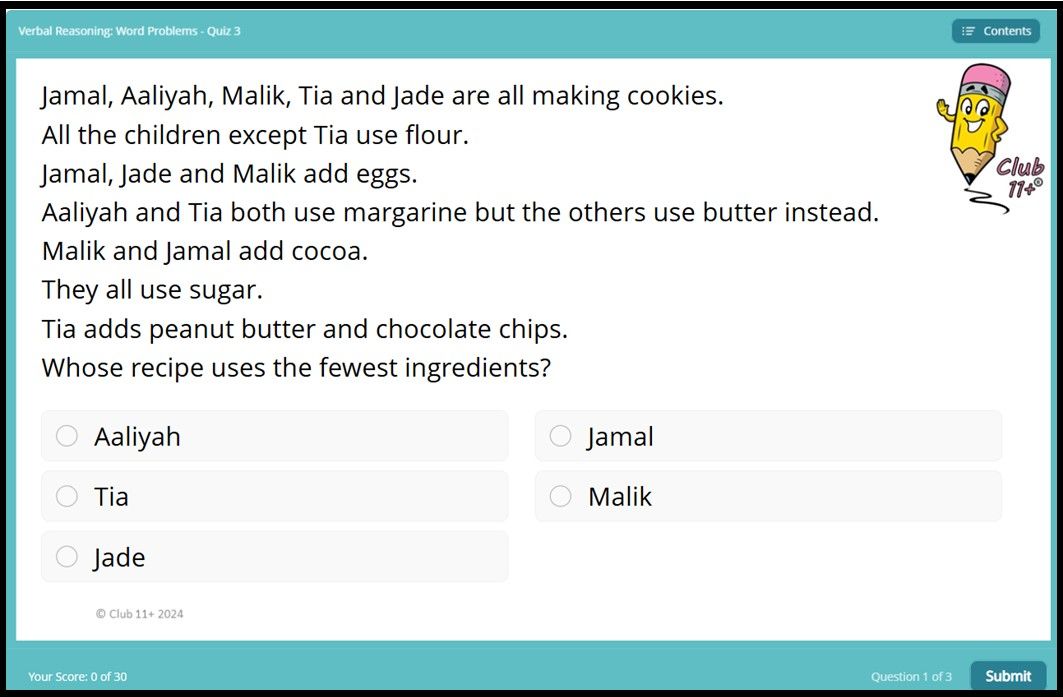
(Answer = Aaliyah. Tip: create a tally of all the ingredients each child uses.)
Our Boffins' Conclusions
While in theory, verbal reasoning questions give every child an equal chance to perform to the best of their abilities, regardless of what they've been taught in school, in reality, these questions can be very tricky for children who haven’t had the chance to practise them before their 11 Plus test. Children who have had the opportunity to become familiar with them will generally perform much better than those who are encountering these types of questions for the first time, and looking at the examples we've just given you, it's easy to see why! In many 11 Plus verbal reasoning tests, children will have less than a minute to answer each question, so it's vital that they don't have to spend valuable time working out how to approach them.
At Club 11 Plus, we’ve carefully broken down the GL verbal reasoning question types into manageable modules, giving your child the opportunity to practise all the different types of questions they are ever likely to come across in a GL-based verbal reasoning test, and allowing them to develop the tools and skills they need to perform at the very best of their ability. With the right practice and guidance, children can approach these tests with confidence, ready to showcase their talent and fulfil their potential on test day!
Please feel free to try our FREE lessons and quizzes to get a feel for what Club 11 Plus can offer your child.
Please feel free to try our FREE lessons and quizzes to get a feel for what Club 11 Plus can offer your child.
